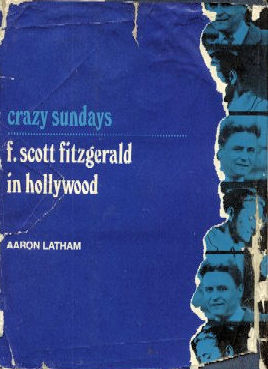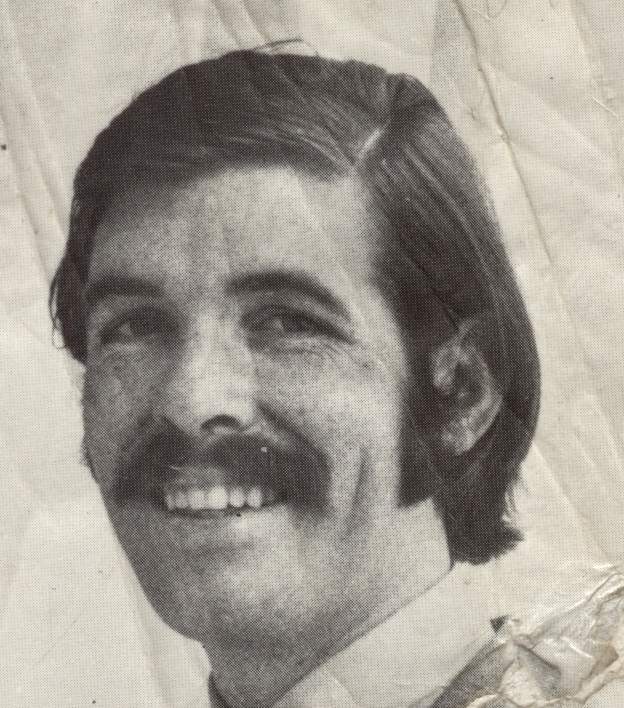
Crazy Sundays: F. Scott Fitzgerald in Hollywood
by Aaron Latham
For my sister, Sharon 1945—1967
Preface
As long past as 1930, I had a hunch that the talkies would make even the best-selling novelist as archaic as silent pictures.
More than anything in the world he wanted to make pictures. He knew exactly what it was like to carry a picture in his head as a director did and it seemed to him infinitely romantic.
Hollywood had Scott Fitzgerald down as a drunk. He himself had helped to shape that image by writing a story called “Crazy Sunday” which immortalized a party where he had too much to drink and “made a fool of himself in view of an important section of the picture world, upon whose favor depended his career.” And there were recurrent bouts during Fitzgerald’s Hollywood years, from 1937 to his death in 1940, when all his days seemed to be turning into crazy Sundays, when he seemed to be caught up in a drunken party which would not end, when he went on making a fool of himself day after day. Toward the end he couldn’t find work.
Most of the time, however, he was not drinking: he was bitterly sober. Most of the time he shunned parties: he had given them up when his success and his wife crumbled at the same time. Most of the time he worked almost desperately hard: the movies seemed to him to offer his last hope of recapturing the fame he had won young and lost young. Unlike William Faulkner and other novelists who went to Hollywood only for the money, Fitzgerald wanted much more: he had come to believe that he could no longer write novels and short stories, but he thought that he could write pictures. “There are no second acts in American lives,” he had once written, but in Hollywood he hoped to prove himself wrong. He had gone there for nothing less than to save himself as a writer.
I went to California in the fall of 1968 to look for the scripts which were supposed to put Fitzgerald back on top again. Most of them I found in the basement of the Metro-Goldwyn-Mayer studio. The scripts had been down there in the “morgue” for over three decades, undisturbed, waiting in long cardboard boxes the size of coffins. I was given an office in the Thalberg Building, and the keeper of the morgue brought Fitzgerald’s screenplays, notes, letters, and endless memos up to me in a shopping cart. For six weeks I stayed on at the studio reading.
One day while I was quietly working in my borrowed office, I was interrupted by a tall man wearing a bow tie, who burst in and, without so much as acknowledging my existence, picked up my telephone, dialed a number, and with all the charm of a used-car salesman offered someone sixty-seven thousand dollars for something. When he had finished making his expensive deal, I introduced myself. Unable to ignore my presence any longer, the tall figure said that he was H. N. Swanson, the agent, and went on to ask if I was writing a script. I explained that I was writing my dissertation for Princeton on Fitzgerald’s motion-picture career.
“Really?” said Swanson. “I used to be his agent. I got him the job here.”
We talked for ten or fifteen minutes about Fitzgerald; then another deal still to be made pulled the agent out the door.
After I left MGM, I found the rest of Fitzgerald’s screenplays—the ones he wrote for Selznick International, Goldwyn Pictures, 20th Century-Fox, First National, and United Artists—in the rare-book room of the Princeton University Library. And I continued what I had begun accidentally at Metro, interviews with people who had known and worked with Fitzgerald in Hollywood. I would like to thank the following for sharing their memories with me: Helen Hayes, Maureen O’Sullivan, Anita Loos, Joseph Mankiewicz, Charles Marquis Warren, Arnold Gingrich, Edwin Knopf, George Oppenheimer, Ogden Nash, Nunnally Johnson, Shirley Temple, Frances Kroll, Frances Goodrich, Albert Hackett, Lillian Hellman, George Cukor, and Sheilah Graham. I am indebted to Fitzgerald’s daughter, Scottie (Mrs. Grove) Smith, not only for our conversations about her father, but for generously allowing me to quote from previously unpublished material. (Where it is clear from the context who told me what, I have not footnoted information obtained through interviews.)
I would also like to thank the motion-picture companies—some more than others—for their cooperation in allowing me to quote from Fitzgerald scripts which they own. MGM, for whom Fitzgerald did the most, was least generous in permitting quotation.
My special gratitude also goes to: Mary Reid Chambers, my editor; Professor Richard N. Ludwig, my Princeton advisor; the late Professor Alan S. Downer, who read the dissertation and made important suggestions; Sigourney and Sylvester Weaver, who helped locate the scripts; Wanda Randall, in the Princeton University Library rare-book room, who helped guide me through the sprawling Fitzgerald collection; and Thomas Plate, who originally suggested that I write on Fitzgerald.
Fitzgerald was notorious for his bad spelling. In This Side of Paradise he went so far as to misspell the name of the man to whom he dedicated the book: Father Sigourney Fay (he left out the u). In general, I have regularized his spelling in all quotations.
Princeton, New Jersey
AARON LATHAM
ACKNOWLEDGMENTS
Esquire Magazine:
From “Old Scott” by Budd Schulberg. (c) I960 by Esquire, Inc. Reprinted by permission of Esquire Magazine.
Samuel Goldwyn Productions:
From the film script Raffles. Reprinted by permission.
Holt, Rinehart and Winston, Inc., and Cassell & Co. Ltd.:
From Beloved Infidel by Sheilah Graham and Gerold Frank. Copyright (c) 1958 by Sheilah Graham and Gerold Frank. Reprinted by permission of Holt, Rinehart and Winston, Inc., and Laurence Pollinger Limited.
Metro-Goldwyn-Mayer Inc.:
Material from Red Headed Woman on pages 66-68 (c) 1932 by Metro-Goldwyn-Mayer; copyright renewed 1959 by Loew’s Incorporated.
Material from A Yank at Oxford on pages 113-14 (c) 1938 by Loew’s Incorporated; copyright renewed 1965 by Metro-Goldwyn-Mayer Inc.
Material from Three Comrades on pages 137-43 (c) 1938 by Loew’s Incorporated; copyright renewed 1965 by Metro-Goldwyn-Mayer Inc.
Material from Infidelity on pages 166-67 (c) 1971 by Metro-Goldwyn-Mayer Inc. This material is from an unpublished manuscript, the copyright in which is owned by Metro-Goldwyn-Mayer Inc.
Material from The Women on pages 186-90 (c) 1939 by Loew’s Incorporated; copyright renewed 1966 by Metro-Goldwyn-Mayer Inc.
Material from Madame Curie on pages 204—206 (c) 1943 by Loew’s Incorporated; copyright renewed 1970 by Metro-Goldwyn-Mayer, Inc.
Material from The Last Time I Saw Paris on pages 247-54 (c) 1944 by Loew’s Incorporated.
New Directions Publishing Corp. and The Bodley Head:
F. Scott Fitzgerald, The Crack-Up. Copyright 1934, 1936 by Esquire, Inc., 1945 by New Directions Publishing Corporation. Reprinted by permission of New Directions Publishing Corporation and The Bodley Head.
Paramount Pictures Corporation:
From the film script This Side of Paradise.
Charles Scribner’s Sons and The Bodley Head:
The following material is reprinted by permission of Charles Scribner’s Sons and The Bodley Head from the works of F. Scott Fitzgerald: The Last Tycoon (Copyright 1941 Charles Scribner’s Sons; renewal copyright (c) 1969 Frances Scott Fitzgerald Smith), The Letters of F. Scott Fitzgerald, edited by Andrew Turnbull (Copyright (c) 1963 Frances Scott Fitzgerald Lanahan), and The Stories of F. Scott Fitzgerald, edited by Malcolm Cowley (Copyright 1951 Charles Scribner’s Sons).
Twentieth Century-Fox Film Corporation:
For permission to reproduce excerpts from the screen play by F. Scott Fitzgerald, based upon the play by Emlyn Williams entitled The Light of Heart.
Warner Bros. Inc.:
Material quoted from Lipstick on pages 56-58. Copyrighted (c) 1971 by Warner Bros. Inc. All Rights Reserved. This material is from an unpublished manuscript, the copyright in which is owned by Warner Bros. Inc.
Next: Chapter 1 A Day at the Studio 1938
Published as Crazy Sundays: F. Scott Fitzgerald In Hollywood by John Aaron Latham (New York: Viking P, 1971).

